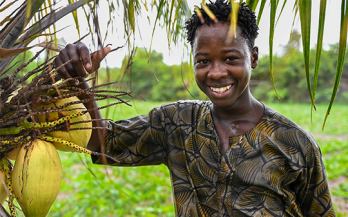

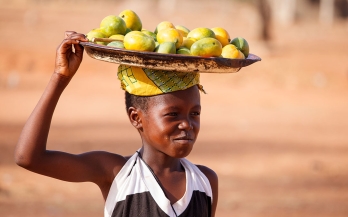
New Fund to Transform Nutrition Landscape in Sub-Saharan Africa launched
N3F is an open-ended debt fund designed to invest in small and medium enterprises (SMEs) focused on improving nutrition in Sub-Saharan Africa. Its innovative blended structure combines public and private donor funds to attract capital from private investors.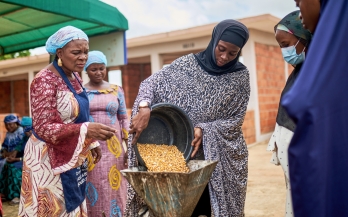
Incofin & GAIN propel nutritious foods fund with new investments in Sub-Saharan Africa
Incofin Investment Management, alongside the Nutritious Foods Financing Facility (N3F) partners, the Global Alliance for Improved Nutrition (GAIN), USAID, and the Swiss Agency for Development and Cooperation (SDC), announces two new investments to enhance food security and nutrition in Sub-Saharan Africa. These investments, totaling USD 1.55 million, underscore N3F’s active deployment in the region. The fund has invested over USD 4 million within its first year of operation.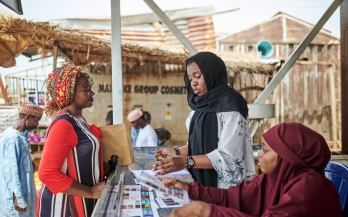
Incofin & GAIN’s Nutritious Foods Fund Announces First Investments in Sub-Saharan Africa
Incofin Investment Management announces the first three investments made through the new Nutritious Foods Financing Facility (N3F), launched earlier this year. Each selected company has received debt financing in the range of USD 0.5 million – USD 1 million to scale up their production, increasing their capacity to supply lower-income local households in Sub-Saharan Africa with nutritious food. Further, they will each be supported with tailored technical assistance managed by the Global Alliance for Improved Nutrition (GAIN).
Food Environments and Diet Quality Among Vendors and Consumers in Five Traditional Urban Markets in Kenya
- 09/01/2025
Traditional food markets are essential in urban food environments in Kenya and other low- and middle-income countries (LMICs). They provide affordable fresh food, particularly for low-income urban communities, and are vital places of livelihoods and local economic activities. Despite their importance, associations between market-related factors and diet quality for vendors and consumers are underexplored. This study explores these relationships to inform policies aimed at improving diets and nutrition in LMICs. Methods: Survey data were collected from 1042 vendors and 876 consumers in five urban markets in Kenya.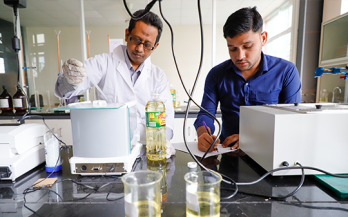
Editorial: Keeping it real - exploring personal sustainability in the context of food systems
- 09/01/2025
Personal sustainability is a relative concept of time, place, and identity. It shapes how “alternative” or “sustainable” are perceived. It is controversial in terms of agency, scale, and impact. Personal sustainability is transdisciplinary, encompassing food security, nutrition, livelihoods, health, culture, and environment. Food systems are systems upon systems where personal choices, practices, and habits around availability and access, consumption and waste to and of diverse (or less diverse), safe (or unsafe), healthy (or unhealthy) diets influence and are influenced by sustainability drivers like the socio-economic factors, climate change, institutions from government to small and big business, urbanization and culture. In turn, this impacts the wellbeing of people and the planet. Such dynamic within food systems is evident at the individual and household level, extending to small and medium-sized entities within developed and developing countries and formal and informal systems.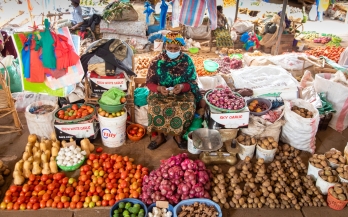
Nutrition security and traditional food markets in Africa: gender insights
- 09/01/2025
Malnutrition is a major global challenge. Multiple forms, from underweight to obesity, exist, and several forms coexist within communities and households. Traditional food markets, also known as wet, local, or informal markets, are widespread in sub-Saharan Africa (SSA) and are a key place where people buy and sell food and socially interact, especially those vulnerable to malnutrition. As such they are vital to food and nutrition security. While it is recognized that gender is an important consideration in food and nutrition security, very little has been published in peer reviewed journals, with respect to gender and traditional food markets in SSA. This mini review aims to explore the nexus role of traditional food markets and gender in food and nutrition security. This study presents a narrative literature review, informed by literature identified in a systematic manner. Four databases were searched for key terms, including nutrition, different forms of malnutrition, gender, traditional food markets, and vendors. The papers provided insight into two main topics pertaining to the role of traditional food market practices, gender, and food and nutrition security. While few papers were identified in this mini review, they illustrated insightful nuances into traditional food markets, gender, and food and nutrition security. There is a need for explicitly framed gender studies that can better inform the limited existing knowledge of the experiences of gender and nutritional security of women and men in traditional food markets in SSA.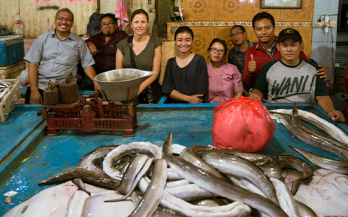
Wet markets in Southeast Asia and access to healthy diets
- 09/01/2025
Hunger and malnutrition in all forms continues to rise in Africa and Asia. Urban and rural communities’ diets in Southeast Asia (SEA) are increasingly unhealthy, with consumption influenced by affordability and convenience. The cost of a healthy diet is a major barrier to accessing healthy foods in SEA. Wet markets are key places in food environments where people buy and sell a variety of foods. They are especially important for food and nutrition insecure communities. This mini narrative review explores the role that wet markets, in SEA food environments, play in providing local communities with access to healthy foods. Fourteen peer-review papers, published in English between 2017 and 2022, were identified during screening and analysed according to six food environment domains. Findings highlight that convenient access to wet markets facilitates access to fruits and vegetables in peri urban and urban areas. Fresh foods, most notably fruits, were viewed as being more expensive than processed foods which in turn influenced purchasing behavior. Divergent findings were presented in the identified papers regarding affordability of food in wet markets. Concerns about food quality and the use of chemicals and pesticides were raised. This review was constrained by several factors including the lack of consistent and meaningful definitions and typologies of the varied forms of wet markets. Looking ahead, better defined interpretations of wet markets can enhance the development and refinement of appropriate policies and actions and comparison of wet markets, in respect of access to diverse, healthy foods, vendor practices and consumer food choices.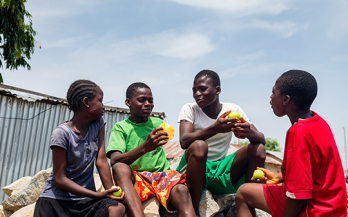
Nutritional, economic, social, and governance implications of traditional food markets for vulnerable populations in sub-Saharan Africa: a systematic narrative review
- 08/01/2025
Traditional food markets in sub-Saharan Africa (SSA) are pivotal urban spaces, especially for vulnerable populations. These markets are vibrant hubs for commerce, cultural exchange, and social interaction, yet they face challenges such as food safety issues, inadequate infrastructure, and regulation that is a complex mix of informal mechanisms in need of a balanced degree of formalization. Rapid urbanization in SSA and the vulnerabilities of informal settlements underline their enduring importance. The COVID-19 pandemic further highlighted their crucial role in promoting food access, supporting local economies, and preserving social connections during crises. However, a comprehensive understanding of their multifaceted impact on urban life remains limited. This study provides a systematic narrative literature review with the aims of mapping the existing literature and evaluating their complex impact on vulnerable communities. The review employed a systematic search strategy, encompassing research studies and gray literature. It highlights the geographic distribution of studies across SSA, with a concentration in East and Southern Africa.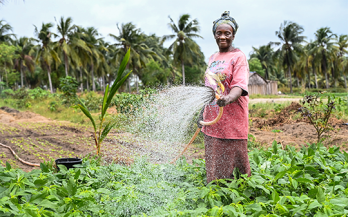
If the farmer grows, who will buy? Building Demand under the Vision for Adapted Crops and Soils (VACS)
Global
The Vision for Adapted Crops and Soils (VACS) relies on a cross-cutting ecosystem of research, policy, production, and demand working together to drive the adoption and consumption of 'opportunity crops'